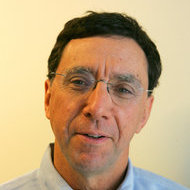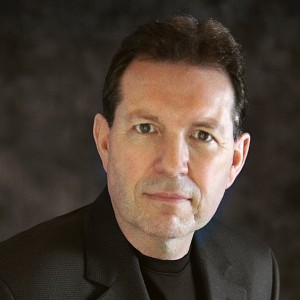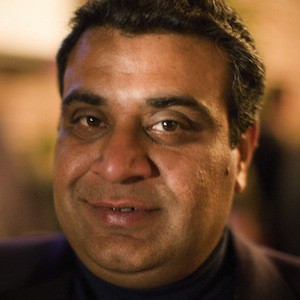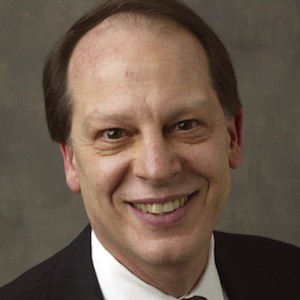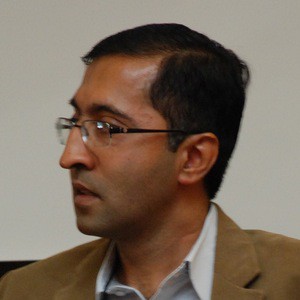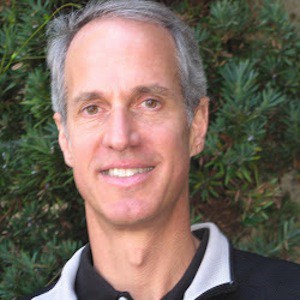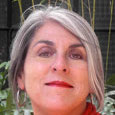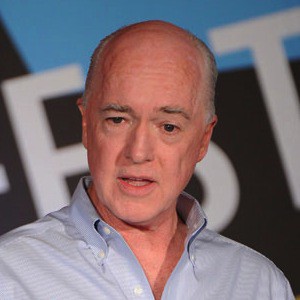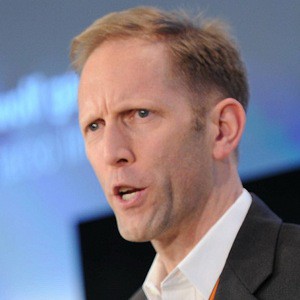Markoff: Journalism I started early but didn’t come back to it, so
it’s slightly tortured. I edited my junior high school newspaper,
and then I sort of fell away. I’d grown up reading I.F. Stone
and “The Nation,” so I was really influenced by I.F.Stone as a
model. Then, while I was in college, I read the autobiography and
perhaps biographies of Lincoln Steffens.
I was very much in an investigative journalist, muckraking
sort of domain. I was active in the anti-war movement, and we were
doing a kind of journalism…where I fit into the political
movement was doing a kind of journalism that was called “power
structure research.” Modeled after C. Wright Mills and G. William
Domhoff.
There were these organizations all over the country —
NARMIC in Philadelphia, NACLA in New York, Pacific Study Center in
San Francisco. I was involved in Pacific Study Center. It was
basically investigative journalism, but without a commercial
connection.
I ended up editing my college newspaper, and then there was
this branch point where I decided that — I think I had applied to
Columbia, but I didn’t finish the process there. I applied to
graduate school at the University of Oregon, and made the decision
to go to the U of O. In my head, it was about relevance. Which was
crazy, because on the first day I was there I realized I was in the
wrong place.
But I had a fellowship, a graduate fellowship, and it sort
of took me four years to unwind it. While I was there, I was very
politically active and there was another research group called
Pacific Northwest Research Center that I was involved in. I was
involved in the .
I applied and failed toward the end of my time in graduate
school for a job in the AP Bureau in Portland. Didn’t get it. I had
done this 70 page report on “Corporate Farming in the Mid-Columbia
Basin.” I used that with the AP Bureau chief, a really nice guy.
This had taken me six months, or something. He said, “Hey, this is
really nice! Can you do one of these everyday?”
I didn’t get hired. I dropped out of graduate school. I had
a master’s degree, and I left. I decided that I really did want to
be a reporter. I wanted to work for a newspaper. That was going to
be my career. I was going to have to back into it. In that point in
the world — this was 1976 — if you wanted to work for a major
metropolitan newspaper, you had to go to
journalism school and then you had to go to work for like the Fresno
Bee or the Modesto Bee.
I had sort of bumbled around. I brought my own money to
Pacific News Service. That was an alternative news service run by
Sandy Close, started by Franz Schurmann and Sandy Close.
It was sort of a wonderful place to be. There was a small
group of people interested in intellectual ideas. Their package, it
went out on paper to about 300 papers around the country every
week.
I had no money but I’d get great by-lines. I had by-lines
in every major paper in the country for these sort of think-y
essays on the war. Then, increasingly, I got very interested,
because I was living and working in Silicon Valley and could see…
This was ’76. Silicon Valley had been named. Silicon Valley
just, how many years before? So, ’73 or ’74, it was named “Silicon
Valley.” I was there right around the time that the notion of this
places was coming together. I sort of grew up with it. I saw it.
I did a couple of things that I remember. I wrote about
surveillance for Pacific News Service. I wrote about the social
impact of the microprocessor and personal computing. I wrote about
“Star Wars.”
As matter of fact, it was my piece on the “Strategic Defense
Initiative,” in which the headline writer used the term “Star Wars”
for the first time with respect to SDI. We sort of coined it. I got
it picked up everywhere, and then the name stuck.
There I was, and I had been working for five years as a
freelancer. I was writing for PNS. What had happened, the reason I
got the gig at PNS and Sandy Close, to her everlasting credit,
was I had found a Quaker family who gave me $6,000, I think. They gave
me $6,000 to support investigative reporting on the military in
Silicon Valley.
Sandy took the money. She ran it through PNS, because that
was a non-profit. She took no overhead and gave it all back to me,
plus she gave me $100 a story.
I was living on $3,000 a year. I was hanging out, both in
the city, where I had a little office, and down in Mountain View in
the middle of Silicon Valley at Pacific Study Center, where we were
tracking what was going on.
There was this amazing branch point, but I really wanted to
get to a newspaper. I was tired of living on $3,000 a year. It was
clear that that wasn’t going to work in the long run.
I was taking the summers off, and going and working in this
wilderness camp. Then, I’d come back, and I’d be starving. From
this great distance, it looks like it was a really great life, but
at that point I was kind of burning out.
There was this moment, where I was looking in the Palo Alto
Times for a job. I had to get a job. The first thing I saw was a
job for guys driving, they had just started a recycling program
and they needed guys to run the recycling.
I said, “This is really honest labor.” I called the guy. He
said, “You know, it’s too bad. I just hired someone, but keep in
touch. I really like college guys.”
I didn’t get that job. Then, a week later in the Palo Alto
Times, InfoWorld, which had just started… It had been
Intelligent Machines Journal, but it became InfoWorld. It was
bought by Pat McGovern. He began to put together a weekly newspaper
for the personal computer industry.
I walked in there totally off the street with my Pacific
News Service clips from the “LA Times,” the “Chicago Tribune,” the
“Washington Post.” I had everything.
They looked at them, and they thought I knew what I was
doing.
It’s true actually. I knew more than what they…
Because they were making it up as they went along. It was a
really sweet group of people, kind of crazy group of some
hobbyists, some sort of wannabe journalists like me and Paul
Freiberger, some techies like Mike Swain, crazies like John Dvorak
and Scott Mace, John Berry.
There was a little team of people, who began covering this
industry just as it started. I walked in right at the right time.
There was this sucking sound. This is in terms of covering
computing, at least. I want to segment covering computing from
covering technology. I see what happened as an aberration in some
ways, just deforming what should have happened.
There was a huge sucking sound in a very rapid order. Dozens
of publications exploded, just all focused on computing. It was a
new industry. It was a consumer industry. It attracted this new
kind of journalism, starting probably 1980 to 1981.
John Geddes: OK. You’re there at the start. It’s pioneering. It’s a new
industry, just like you landed in a new country to cover as a
foreign correspondent. You were there new. When did the social
impact of it start to hit you? In other words, that tomorrow will
be different than today? You came in from the surveillance side,
from the passionate…
John Markoff: Are you talking about media, or society and the technology?
John Geddes: I’m talking first about society and technology.
John Markoff: I had already seen that. I had already come into contact
with Moore’s Law which argues that things become faster faster.
That was really sort of on the technical side, I saw that.
I had seen three things, probably. I sort of knew about
Moore’s Law. I had read this book called “The Microprocessor
Revolution,” which was written by a British guy in the 1970’s. It
argued that the microprocessors were going to change society. I
bought into that big time.
The third thing that happened that sort of set me apart is
that, through a strange set of circumstances, I became a friend of
a guy who was one of the designers of the Alto at Xerox PARC.
Before I was at InfoWorld, maybe as early as 1979, I had
seen a Parc Alto. I realized that computing, networking and all
of that stuff, was all going to be…
It was kind of the same kind of insight that Bill Gates
had. That there would be a personal computer on every desk and
they would be connected. All of this fell out of that. I was
writing about that. I was the one at both PNS and at InfoWorld that
was writing about social impact stuff.
John Geddes: Were you a geek? Had you ever programmed?
John Markoff: I enjoyed hanging out with hobbyists. I was on the
periphery. I had taken programming classes in graduate school
because I needed to be able to do things for statistics. I had some
experience.
I was hanging around with the people. They were all around
me. Particularly, after I got to InfoWorld and people were
building their own S100 based computers. I was not going to be a
geek. I was always going to be a reporter so there was a different
path.
I enjoyed playing with the machines. I had been going to
West Coast Computer Fairs, probably going back to ’77. I don’t
think I went to the very first one, but I was probably at the
second West Coast Computer Fair. Just watching the hobbyist scene
explode into this billion dollar industry.
John Geddes: You walked in the with the feeling from your books and from
your experience that this was going to change society. When did it
become clear to you that it was going to change the news business,
like journalism, your craft?
John Markoff: I knew that, intellectually, very early on. Did I
understand how much it would undermine it? I don’t think I
understood until much later that sort of the obvious thing, that
the monopoly choke point would go away and Craigslist would pop-up
and eviscerate the industry. I don’t think I understood that.
I sort of understood that the industry was in for a really
dramatic rough sledding, not without knowing the specifics early
on.
You have to remember, you were looking at things through
the lens of a 300-Baud modem. It’s very hard to see. That was
probably harder to understand, the impact bandwidth would have and
mobility would have, and WiFi and things like that, toward
transforming news, but in principle.
The company that was in the office before InfoWorld, on
Lytton Avenue in downtown Palo Alto, was this early networking
company. I’m blanking on its name now, but it had been this early
effort to basically do an Internet like sort of communications
technology too early, and it failed.
When we walked in there, the first couple of weeks, they
were still pulling the parts of that company out there. It was
everywhere. “The Source” was around. “CompuServe” was around. You
could see that something like that was going to happen and there
had been these experiments.
Crazy Geoff Goodfellow at the Stanford AI Lab had managed
to get the New York Times wire to flow into the ARPANET. I knew
that was around and could see it.
I don’t remember writing a lot about the death of
newspapers. I sort of assumed there would be a transition to an
electronic world, but assumed it would still be profitable
and maybe even more profitable, rather than profit-less.
John Geddes: Profit-less. Well, it’s a different world. I guess that’s
what’s often said, that the pace had changed, that Moore’s Law
would affect the transitions too. It gets faster and faster.
Nobody had anticipated that, because let’s remember. The
newspaper industry had been through 15 years of getting rid of
“cold type.” They had withstood that, which had been there for 300
years and maybe there was a cockiness about the ability to
withstand change.
John Markoff: The other thing is that computing and connectivity, those
transformations — I just have to try to stay away from the word
“revolution” — but those transformations were separate.
The computing thing happened. The desktop computing thing
happened and the pipes were very thin. As long as the pipes
remained thin, there was something that wasn’t happening, and that
came later.
Steve Jobs, as late as ’84, sort of missed the thing that
he saw at Parc. He missed that all the computers were
connected.
People knew it was going to be the Year of the Network. We
used to joke about this. It was the Year of the Network every year
for like 15 years, before it was finally the Year of the Network.
Those two things had to happen, before you could really see
where things were going.
John Geddes: It’s that further iteration, the network turning into the
social network. It’s that one come in one on top of another, which
had multiplied.
You’ve also lived, as have other reporters here, through
that change in the relationship with the audience, that
when you started at InfoWorld, when you started
at Pacific News Service, you’d oftentimes get a letter in the mail
once every five weeks. It’s changed into something
far more intimate. How does that effect your journalism? What has
that changed?
John Markoff: Well, I know that’s going on, I’ve listened to guys. But I am
the most protected and the last survivor of the old model. I mean,
the Times really is. Everybody else is sort of chattering on about
how journalism is a conversation. Not where I work. I frankly have
no interest in that conversation. I do my job.
I guess where I fit, where I come down on that is, I’m sort
of more comfortable with George Orwell, who said, “Journalism is
what people don’t want you to know. Everything else is PR.”
Everything that I’ve done that I’m proud of is turning over
a rock and finding something, as opposed to the scoop cycle of
Silicon Valley, which I deeply hated and I’m now finally away from.
It took me a long time to get away from that.
John Geddes: Once upon a time, it was you and others — the people at
the Journal, the people at the Times — you were the main target
for all of Silicon Valley, as far as scoops…right?
John Markoff: Yeah. It was a certain part of the ecosystem we lived off
of. I had a very love/hate relationship with that. Didn’t want to
miss the story, but you knew you were playing a part in an
ecosystem that was about money and everything else, that is not
what I signed up to be as a journalist. As the Silicon Valley
reporter of The New York Times that was a big part of my job.
John Geddes: That ecosystem’s changed now, not just because of your
position. The ecosystem’s changed radically now.
John Markoff: Yeah. I see it as being more confused. Yes, you’re right.
I’m thinking now about these communities of interest around
products, where now I would say that’s right, it’s become more
decentralized. The barriers to entry have fallen. Everybody can
create their site. Everybody can be a journalist. Most of those
people are trying to do it on a for-profit basis, but there are
lots of hobbyists out there that are in the mix. Everybody can be a
voice.
There’s lots and lots of cross-cutting and things going on
now, and I don’t think it’s settled out. I have, for a long time,
bought the idea that much of what has been journalism will be
automated. In a way, maybe we’ll go back to my notion of
journalism, as the role of the press is to report what society
needs to know and isn’t being told and everything else will be
automated.
I think I got this for the first time relatively recently.
Probably 10 years ago, I saw Intel Labs build a system that
automatically created a highlight reel for a basketball game just
by pulling on crowd cues and things like that. They did a very nice
job of generating the evening news. I looked at it and I thought,
“You could do this for a city council meeting just as well.”
Nobody had done it, but it was obvious to me that any kind
of set-piece interactive function could be picked up by technology
and automated. It’s been slow, but I can see it’s bubbling all over
the place. I’m 20 days away from my pension, so it’s not really my
problem, but I can really see that a young writer has some deep
choices to make.
This is right now. This is best of times, worst of times. I
see so much stuff going on and I don’t see a lot of super
profitable stuff going on. There’s capital flowing in and so
there’s lots of support for experimentation, but it’s not clear to
me that anyone’s nailing the business model.
Although, maybe it never changes. Here, what are we, 10, 15
years out from Justice League of America, this effort from brand-
name journalists to create a news site that never went anywhere.
Steven Levy creates something called “Back Channel” on the
Medium website. I keep pressing Steven, “What’s your business?
What’s your business?” because they don’t have any advertising.
His business is he’s got a billionaire who’s funding him.
This is probably a rounding error. If a billionaire can do this as
a hobby and has an audience, maybe it doesn’t matter. Maybe that is
the business.
John Geddes: One could always argue that the history of newspapers in
America was always the billionaire.
John Markoff: That’s what I was going to say.
John Geddes: Let me go back and ask two things. Justice League of
America — tell me about that episode.
John Markoff: What I don’t remember now is whose idea it was. I remember
some of the people who were at the table. I don’t remember. Was
this at a PC forum?
John Geddes: You had said it was either a PC forum or one of the
gatherings where the same group came, year after year.
John Markoff: Showed up every year? PC forum or…Stewart Alsop’s was not
PC forum. His was the other one.
John Geddes: No, his was the other one.
John Markoff: It was one of those two events. It was the same group. Was
it ’97 or ’98? It was fairly early on, when things were very
frothy. Walt was there, Walt Mossberg, Kara Swisher, Steven Levy,
myself, Peter Lewis, Dan Gillmor. There were three or four others.
John Geddes: Dvorak?
John Markoff: No, Dvorak was always a loner. He wasn’t there. We talked
about the idea. It seemed kind of obvious. Some people like Dan
were really into it. Dan was a deep believer in looking for new
models. All the rest of us had our…I didn’t need this. I was not
feeling entrepreneurial. I already had all the platform I would
ever need in my life. I kind of liked the group, but I wasn’t
committed in any way.
Before anything could happen, I remember just one
discussion around a table where everybody was sworn to secrecy.
Kara immediately went to Jim Breyer at Accel Partners that night
while he was drunk, as I remember. That’s hearsay. He wrote, I
think, $10 million investment on a napkin. Then it fell apart.
Nobody was willing to commit, to jump. I think Dan would have
jumped.
John Geddes: It’s that interesting thing. We’ve lived through an era
where, when we started it was almost the institution we worked for.
We weren’t meant to overshadow the institution. The institution was
supposed to be the brand, not necessarily us. It always existed
that there were brands out there — a bad columnist, Johnny Apple.
There were always brands out there. We weren’t expected to promote
ourselves. That’s different now.
John Markoff: I agree, although that discussion began very, very early.
It was at the Berkman Center. Early on, it began holding these
Internet and media conferences. I think I was at the first one.
John Geddes: You were at one in Nieman in ’92 or ’93. Was there one at
Berkman, too?
John Markoff: Maybe it was Nieman.
John Geddes: It was at Nieman, because I went back and read your speech.
John Markoff: That’s interesting. There’s a transcript. There was this
interaction between Esther and Arthur, where Esther suggested that
I was a brand name. I was aghast at that idea, because I had always
loved reading new journalism. Brand-name journalism had been around
in limited form. There were the Tom Wolfe-style journalism where
you put yourself in the story.
I really loved reading it, but it wasn’t me. For me, dying
and going to heaven was working at the New York Times because I
never expected to be at the “New York Times.” That was serendipity.
I always ran away from the idea that I would be a brand. I was
committed to the idea of not being in the story, although I enjoy
reading people who do the other.
John Geddes: How do you think that’s changed now? The fact that that
expectation that you went into and you didn’t want to be the brand
and other people didn’t want to be the brand. Now, it’s almost
presumed with tweets, with social networking, that you build up
your own. Your following is something that travels with you.
John Markoff: My sense is that different institutions have different
commitments to this notion of forcing the…that’s an interesting
question. I still think that this cobbled-together social presence
that comes from lots of different things is an imperfect mechanism.
It’s not as effective, for example, as video or TV where you have
THE personality. The Charlie Rose.
There are Twitter equivalents of Charlie Rose for those
little universes, but they don’t have the kind of force that
television has in terms of personality, I don’t believe. Maybe
that’s just a matter of the platform hasn’t emerged yet.
John Geddes: Right. It may be a matter of the difference between 10
words and 30 minutes. 140 characters and 30 minutes.
John Markoff: There’s this new wave of experiments that I see. I keep
watching this thing morph constantly. Vice popped up over the
last couple of years. Now, I haven’t even looked at it yet, what’s
Fusion? Do you know Fusion?
John Geddes: No, I don’t know Fusion.
John Markoff: Alex Madrigal, who had been at The Atlantic just jumped to
Fusion. I saw that. Fusion is about video. I haven’t had time to go
look at it yet, but I have a sense that there’s yet another model.
Lots of money, lots of talent, and they’re taking these people and
they’re going to be doing video. Maybe it’s a print/video thing. I
see this as a search toward finding…it’ll obviously be Max
Headroom at some point. Isn’t that where we’re heading? I’ve seen
this.
John Geddes: Max Headroom, putting together clips from the basketball
game.
John Markoff: Exactly, with the AI in the background. It will emerge. I
know that. For good or evil.
John Geddes: Talk a little about the chronology of journalism coverage
in the Valley. How has all this changed what you’ve observed, as
far as, are we covering this well?
John Markoff: I’m a huge critic. I think that the deformation I talk
about is the role of vast pools of capital and how they’ve
influenced coverage. When I first came to the New York Times, for
example, the Times had this wonderful weekly meeting of the
technology pod. We were called pods, right? There was really a
broad view of technology. There was a guy that covered the chemical
industries because that was technology and there was somebody that
covered energy.
Computing had a seat at the table. Telecommunications was
separate. Computing had a seat at the table but it hadn’t eaten
the world. Then, I watched as everything changed. Let’s just look
at the Times, going from nobody covering to computing and having
one technology writer at the paper. David Sanger circa ’84 to ’88
defining this beat nationally. At that point, Andy Pollock, who was
in San Francisco, was still covering banking and, oh by the way,
there was this thing called Silicon Valley. He was doing both and
began to do more Silicon Valley coverage.
When Sanger went to Japan and I went to replace…no. I
replaced Sanger first in New York and then I replaced Pollock when
Pollock replaced Sanger in San Francisco. I went to San Francisco,
and I didn’t have to cover banking. The banking industry was
New York. I just covered Silicon Valley. By that point,
Silicon Valley was everything from semiconductors to networks to
computing and it wasn’t the Internet when I showed up in ’92.
It was just me, and I had a stringer, Larry Fisher. Larry
left. I got another stringer. During that period, beginning in ’96,
we went through the first bubble. There was a point where it was me
and Matt Richter and I think there were 13 reporters at
the Journal. Just this vast switch in coverage. This was a “follow
the money” kind of thing. That’s the way I saw it.
The Times, to their credit, stayed back, but you could see
our technology coverage change. Now, you come forward to today and
there are seven people just covering technology for the “New York
Times” in San Francisco and I’m not one of them. I write about
technology, but I’m notin the business section covering technology.
That’s how deeply it’s changed.
To my mind, what’s left of newspapers and even on the Web,
has forgotten balance. I mean, the Internet has perturbed coverage
and it’s this prism with which you look at the entire world.
John Geddes: Has the prism been too much corporate coverage? Do we pay
too much attention to Apple?
John Markoff: Clearly, we do. Apple has always been a reality distortion
field. For reasons I do understand and reasons I don’t understand,
Apple perturbs the universe. But it’s not just Apple. The New York
Times coverage, as I see it, has largely devolved into four
companies — Amazon, Google, Facebook and Apple — which I find
bizarre and frustrating.
But it was a bit celebrity — follow the people and follow
the money. I don’t think that reflects…Maybe I’m just an old
fogey and out of tune, but I really think the coverage got eaten by
the Internet.
John Geddes: Have we lost sight of what you started off on with the social
impact of technology? If you look back over the last 20 years, what
strands have we picked up? Follow the money? Celebrity-hood?
John Markoff: There’s a lot of coverage. I wouldn’t say that we’re not
covering the implications of technology. It almost becomes like a
cliche. Right? Every technology, there’s the dual-sighted thing and
it’s sort of formulaic in a way. There’s a lot of discussion of the
impact of technology, maybe even too much.
But I wouldn’t say we under-cover that. I think the other
technologies in the world have been marginalized. That’s probably
because of the way computing and communications have become a
universal medium. They’ve reinvented everything in the world.
They’ve reinvented science. You can’t touch something that hasn’t.
Maybe it’s inevitable.
John Geddes: Is there something in news organizations that prevent us
from innovating? Someone said, in one of the interviews in
“Riptide,” that the problem is news organizations aren’t used to
beta because news organizations and newspeople are meant to get it
right the first time. A beta existence says you’re going to get it
wrong, and that’s an anathema.
John Markoff: I often tell people when I make mistakes, “Think of it as
beta.” That’s funny. That’s my cop-out. But you’re right.
I actually think that news organizations have trouble with
this because they’re not start-ups. You’ve got a newspaper to put
out everyday, whatever the frequency is. There are certain things
that are sort of ritualistic and required that have to
work and you don’t have a lot of time to rethink the process.
Being stuck inside a paradigm, it’s probably even worse
than the kind of corporations that get stuck inside their
particular paradigm and can’t innovate out. They get, what’s the
word?
John Geddes: They get a self-fulfilling prophesy? No.
John Markoff: No, when someone comes along and takes their business and
their industry. Disrupted.
John Geddes: Disrupted.
If you look back over the last 20 or so years, are there
key junctures that you think made a difference in journalism, in
news, in how people cover it? Some people say 9/11 was a key point,
because suddenly everyone started turning on the computer more
during the day to see what was going on. It was a news event that
drew a different audience away from the next day, from the news
night, into an immediacy.
Are there other things? Was AOL/Time Warner?
John Markoff: The ones that have really shaken my world are “WikiLeaks”
and Anonymous and Snowden, the more recent stuff, that really the
story has been taken out of the professional journalism world and
just liberated.
John Geddes: Something like that. Is that because, is the next story
going to be surveillance? Is the next story going to be privacy?
John Markoff: I don’t think that, so much. That was more of a move to
citizen journalism, in a sense. Snowden really controlled that
story and turned the whole world upside down. Before that,
Anonymous had been having this kind of impact. And before that, WikiLeaks
had shown that the Internet could be used as an effective medium
and extremely disruptive.
It’s hard to control the whole story anymore. What happened
before that, let’s look back. That’s very recently and really
dramatic.
The way news is gathered has profoundly changed. Who calls
the librarian for clips? We all do our own research now with
Google. Google had that kind of impact, the emergence of search
engines on the web. That had been forecast for decades and then,
all of the sudden, it arrived in a hypertext kind of world.
Were there other junctures? I was at Bruce Koon’s wedding
last night and Larry…he’s the publisher of “USA Today.”
John Geddes: Larry Kramer.
John Markoff: Larry Kramer. Larry Kramer who invited myself and Paul
Freiberger to give him an introduction to the Internet in 1995. Was
it even earlier than that? Was I already at the Times?
It was really early. Freiberger and I went to a group that
he was starting. I think he was doing sports betting initially,
before MarketWatch. Did you ever financially get involved with
that?
John Geddes: No.
John Markoff: That was separate. Kramer took a great lesson away from it…
He was one of those people who saw things really early on,
from a business point of view. Interesting that he’s the publisher
of USA Today now.
Google News was a dramatic point. News by machine. News by
algorithm. I think that was a really big deal that we’re only
beginning to see…..still, it’s been around for 10 years. There have
been lots and lots of experiments, but I think that’s a major force
that we don’t completely recognize yet.
John Geddes: To circle back to the thing about WikiLeaks and the
changes, the confirmation of citizen journalism as a force, that
the news is uncontrollable or it’s happening out there without the
validation of citizen journalism. When I talk to Esther or others
about this, Dan today, they both say there’s a missing piece here.
The missing piece is the readers have to get smarter in
knowing how to read news, that they have to be able to discriminate
more. It never was required of the reader. In a world of info-
besity, how do you decide who to pay attention to and who not?
John Markoff: Boy, I think I see it. I’m not a real waterfront kind of
guy, but I see news communities, which are the readers, emerging
around things like Reddit or 4chan these things you would
never have thought of as news publications. Or Facebook or X.
Was the word “info-besity”? I refer to it as the fire hose.
For a long time, I tried to keep up with the fire hose.
Then, I gave up. I’ve taken refuge inside myself. I’ve taken
refuge inside the Wall Street Journal and the New York Times.
For a while I had an RSS feed. That is a technology that I
think has failed basically. If you want to be a wire editor,
please. But if you want to know about the world and be educated
and up to date that’s not the answer.
There’s a missing piece, but I think the audience has self-
selected and has gone places. Hacker News, Reddit, 4chan, these
huge communities — or Huffington Post — have emerged.
Huffington Post fascinates me because, to me, it is a step
towards…
It used to be that you chose your newspaper by your
politics, even in America, and still in Europe. Huffington Post and
many other types of news platforms seems to be a step in that
direction. They want to see the news world through a political
prism they’re comfortable with and that’s going on right now, which
seems to be the metronome swinging back in a way.
John Geddes: Does that make you happy, someone who came from the far-
left of the Pacific News Service?
John Markoff: If you ask me, personally, no it doesn’t, because I began
as an activist. Somewhere around, I would say, the end of the anti-
war movement, I picked my head up and realized everyone else had
left. There was no political movement in the country and I decided,
“Oh well, I better get a job.”
Actually, what happened to me personally, my view of
society didn’t change. What changed for me personally was that I no
longer felt that I had the solution. Which made me perfect to be
the kind of reporter at a place like the New York Times. I
have my perspective, but I don’t really pretend that I have a
solution for society. I never did.
I think there are a lot of people who believe they have the
solution. I’m just not one of them.
John Geddes: Coming up close to time. Last question for now. I may come
back. Are you optimistic about journalism? I’m not saying about
newspapers. I’m saying about journalism.
John Markoff: If I didn’t feel that things were still changing so
dramatically, I’d be very optimistic. What’s striking to me is how
much journalism there is out there, how easy it is to commit
journalism. How easy it is to reach an audience and how much
innovative stuff I see.
That makes me feel very…despite the fact that my
publisher is cutting back and seems in doubt, still in doubt, the
idea is, to me, right now it’s very easy to be a journalist. Easier
than it ever has been, to the point where if a young person
starting out in the field comes to me, I wouldn’t say no at this
point. I would say, “Just be agile. Be ready to change with the
technology.”
Where I worry is that seeing what’s going on in terms of
technological change and my sense that we’re not in an end-game in
terms of this media at all, I just spent a year on an AI book.
Watching the pace in these automated systems and what they’re doing
to intellectual work, why should journalism be protected?
If you can do sports and you can do the city hall and you
can do entertainment all very well by machine, what’s left?
Right now, Narrative Science and a couple of other
companies are taking stumbling steps, but I expect more. That
forces us, as human journalists to be more creative and maybe
spend our time turning over rocks, but there might be fewer of us
too.
John Geddes: There might be. Now, you’ve just triggered a second to last
question. How well do you think we as journalists covered the last
20 years of digital?
John Markoff: On one level, I’m very critical, because technology
journalists as a group have become too close to the subject they
cover. It’s always troubled me. When there’s that much money, it’s
very dangerous for journalism.
Let me relate a story from the very beginning of my career,
when I first realized. I had been an investigative reporter and I
was getting sucked in by the rise of the personal computer. I
showed up at InfoWorld. Maggie Cannon, who had been a secretary and
ended up editing InfoWorld, the first real editor. She was
wonderful but she was making it up as she went along. She took us
to my first ComDex in the fall of 1981, which was the big computer
show at that moment.
She took us out and she put us in a limousine to take us
there. I didn’t want to be seen. What were journalists doing in
limousines? But we took a limo to the airport.
Then, I went to my first party, one of those evening,
glittering events. Who was it held by? It was someone like Sanyo,
someone who made disk drive peripherals. There I was standing and
there was this immense bowl of shrimp. I had just entered this
world. I looked over the top of the bowl of shrimp and there was
Stewart Brand on the other side. I go, “Oh, I get it.”
John Markoff: It was palpable. Nothing’s change in a way. It’s very
dangerous. By and large, the technological journalist corps that
you’re looking at has not been an adversarial group. They haven’t
told the hard stories well enough, I think. Part of that, I’m
critical of myself for that.
John Geddes: Thank you.
